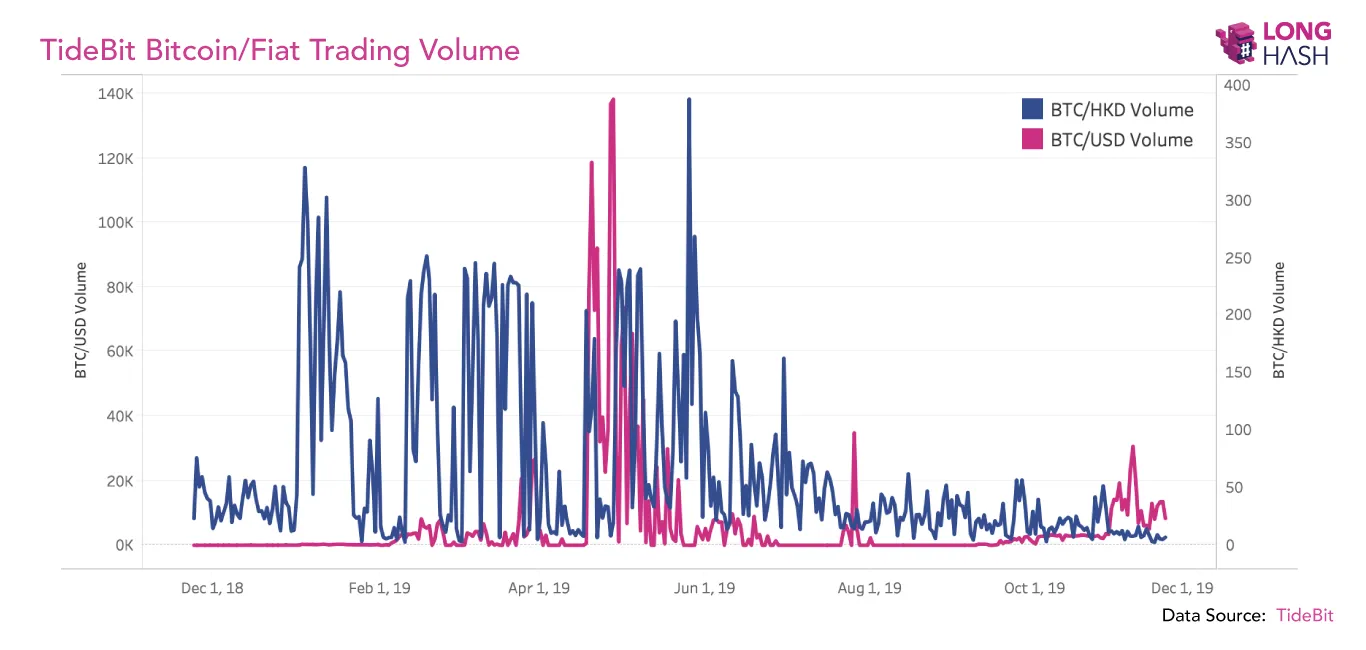For almost nine months now Hong Kong has been in a state of unrest as massive civil protests constantly break out.
Since the movement started, various industry news outlets have been keeping a close eye on whether this has led to increased crypto adoption. However, the answer appears to be a definitive no.
A report by data analyst LongHash published yesterday claims that there was no significant increase in trading activity by Hong Kong residents following the civil unrest.
The report analyzed a few key factors that might be tied to a rise in crypto activity in Hong Kong. Namely, how popular local and mainland China-tied crypto exchanges are among Hong Kong traders, how actively bitcoin was traded against the Hong Kong dollar and whether there was an uptick in local crypto buying activity when the protests started.
For a start, people weren’t flooding to any Hong Kong-based crypto exchanges. While Chinese exchanges are still popular in the region, Coinsuper, which started offering Hong Kong dollar deposits in December, 2018, struggled to get any traction.

The report shows that bitcoin to HKD trading dropped significantly on TideBit and Coinsuper between March and April—when the first demonstrations started—and kept sliding downwards, apart from some minor spikes.
However, centralized exchanges are not the only way of buying bitcoin, and perhaps citizens were exchanging bitcoin amongst themselves, on sites like LocalBitcoins. But, taking a look there, the report found no increase in volume for trading between the Hong Kong dollar and bitcoin—plus a hefty decline over the last few months.
To sum it up, as far as the data shows, Hong Kong traders still mostly use crypto exchanges associated with mainland China. And while local platforms with fiat gateways saw some rises in volume, the report found that little of this came from Hong Kong, or was associated with the Hong Kong dollar.
But, despite eschewing bitcoin, Hong Kong is still experimenting with a decentralized technology in its fight against centralized control.

